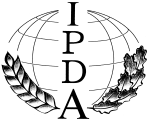| |
The International
institute of public development
Table 1
Orientations
involved into the tasks of the Institute
|
Practical line – creativization of
tuition and all the life – step-by-step penetration into
ideas and the practice of creativity, into the sense of
constructive respect to all life situations |
Separate Universities of creative
work or one “International Public Development
Institute (University)” (I P D I) with national
branches (provisionally): in Russia (Samara, Belgorod
?), Germany (Stuttgart), Austria (Vienna), and,
possibly, Moldova (…)
|
·
Das
weltweite Methodologische Zentrum «Die ENTWICKLUNG
der MENSCHHEIT»;
·
The world
Methodological centre
«MANKIND
DEVELOPMENT»
(parallel
interconnected departments in 2… 4 countries) |
|
TASKS: Application of the very idea
of development of social life and life of every
individual – for the society
|
TASKS: Enlightenment; revealing the
most socially sharp and tense problems in the regions;
co-creative work on-line for solving them, submitting
the solution to the administration |
TASKS: Collective development of the
Theory of public development (TPD – see Table 2) and the
creative practice; revelation, estimation, and
re-verification of significance of the submitted
achievements. Publication and public discussion of the
estimate criteria. |
|
IMPLEMENTATION: any educational
institutions, regional scientific centers, regional and
local administrations … |
IMPLEMENTATION: on the whole,
transmission of methods and advises to the Internet
space, and it is desirable – by national TV channels 1…4
hours a week (up to 24:00) |
IMPLEMENTATION: keeping informed;
transmission of methods and advises to the Internet
space. Organization of creative contests, establishing
“Nobel Committee #2” with expertise of achievements by
objective criteria and open procedures |
The basic information channel
– Internet. TV evening news up to 24:00 1-5 times a week in
certain days; campaign for abolishing illiteracy with pictures,
video, and discussion of local problems
Endorsees:
plenipotentiaries from agreed countries, regions, associations …
Tuition by correspondence: Paid Internet
channels (annual subscription) and free ones (if the states will
fund the tuition proportionally to Gross National Product). Or
those who intends to order methods for solving practical
problems. Passing examinations on 3…5 subjects and defense of
the projects twice a year
Full-time tuition:
since 11, it is desirable in places remote from modern
civilization; if after such tuition somebody wishes to join a
standard high school, one should strive to alter the united
state examination or introduction of special examinations
Annual or five-year courses for adults,
accounts – every term; a list of accounts on the TPD’s
specialties and projects on the agreed themes
Any novations:
technical, social, ecological, scientific, nonscientific (still
not accepted by science), anti-scientific (contradicting the
received knowledge, approaches, dogmata) with any kind of the
proved effect (or damage) – economic, material, moral,
informational – but with crisply expressed and proved
usefulness and having prospects
Even culinary receipts having crisply marked
usefulness (economy of expenditures, lowering the raw stuff,
better saturation of an organism with necessary substance,
improved organoleptics, minimization of possibility of
infection, enhancement of output, … ) and promising use in
theory and the practice of culinary.
Similarly, with its own specifics, technical
goods and products and technologies – serial and unique samples;
new patterns of websites, sports and other games, certification
systems, marketing; economic and social-political systems – but
only having crisply marked usefulness and promising application
Table 2
The structure of
the Theory of public development (TPD)
|
*
- Theory of
detection of public losses (ThDPL)
Revelation and
estimation *
of the losses (economic, creative,
scientific, social, spiritual,) – permanent, periodical,
stochastic, MPL ↓see
|
NV
-
NOVISTICS*,
The
theory of novations (novelties)
|
ThOPD*
- Theory of
overcoming the “public drag” – stagnation, inertness,
“professional cretinism”, corporative egocentrism, … -
by means of
terror,
wars,
administrative resource,
justice, return law**,
culture, religion… |
|
ThI
Theory of
invention – construction of systems, id est steady
form-buildings (including social, that is emerging as a
result of social revolutions or introduced according to
plan) |
NM
NEOMETRY**
- Theory
of calculus (metrology) of novations
↓ |
| |
|
|
|
SOCIAL-ECONOMIC
METROLOGY OF NOVELTIES (INNOVATIONS) - NEOMETRY
|
MPL
* |
NM
**:
methods and means of estimation of novelties in the
production spheres: |
|
Metrology
of public losses f(Scale of a problem M,
Specific damage SD, Duration of impact T)
|
MATERIAL • SOCIAL • SPIRITUAL
(moral-psychological) • (SCIENTIFIC)
(ECONOMICS)
└ (S O C I O M I C S) ┘
(SCIENCE)
└(
E C O L O G Y) ┘ ┌
PROSPECTS
┐
|
|
EMT
Econometry |
SMT
Sociometry
|
QMT
Qualimetry
|
MED
Propagation
to future |
SMT
Sciencemetry |
|
Volume of
(material) production output, profit, economic
(industrial) losses
|
Social
sequrity; well-being of the people (material, food
supply,
sanitary-epidemiological, medical, moral-
psychological) |
Quality:
specific usefulness (that of a unit of production) –
goods, services, works |
Moral
expiration date f(initial efficiency Ei,
level of novelty N) |
Social
usefulness of scientific achievements (scientific,
economic, and social effect and damage) |
|
ORGANIZED
AND FUNDTIONING SYSTEMS:
└ ■ CERTIFICATION OF QUALITY
AND ECOLOGIC PURITY
OF
PRODUCTION &
INDUSTRY ** ┘
└ ■ QUALIFICATIONS OF SOCIALLY SIGNIFICANT ACHIEVEMENTS
AND CONFERMENT OF THE CORRESPONDING CREATIVE DEGREE
OF
PUBLIC DEVELOPMENT
** ┘
|
A significant part in strengthening certitude
of the right direction of our work in the sphere of social
development belongs to the open decision of European parliament
in 2008 with respect to European year of creation and
innovations – 2009: DECISION
OF THE EUROPEAN PARLIAMENT AND OF THE COUNCIL concerning the
European Year of Creativity and Innovation (2009) - COMMISSION
OF THE EUROPEAN COMMUNITIES, Brussels, 28.3.2008;
KOM (2
008) 159 endgultig В
2008/0064 (COD).
Следующая страница
>>
<<
На Главную страницу сайта
|
